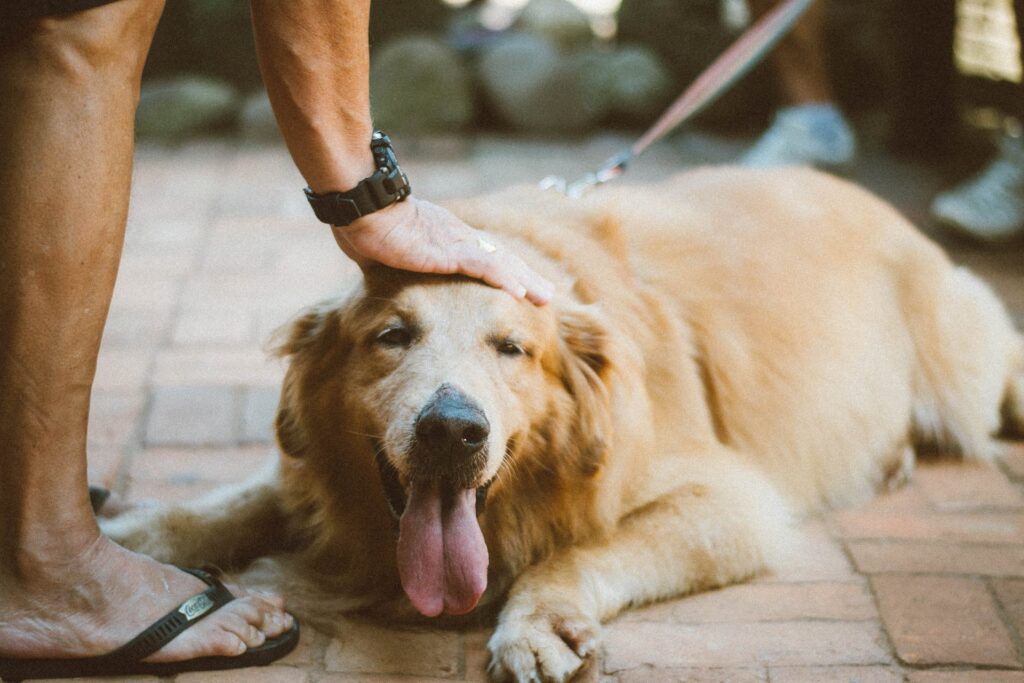Can I Be a Foster Carer If I Have Pets?
Date published
20 September 2020

Becoming a foster parent is exciting, rewarding and a little daunting all rolled into one. Yet, despite the inevitable challenges that come with providing life-changing support to vulnerable children, more people than ever are starting their fostering journeys. Thankfully, last year we saw an increase in approved fostering households, meaning more children than ever are receiving loving care in happy homes.
With this heightened interest comes plenty of questions about the fostering process – what are the challenges and rewards, do I need any specific qualities and what support can I expect? Alongside the emotional considerations, families also want to know about the practicalities, especially whether they can foster with pets in the home.
While it may seem like an afterthought to some, most people see their pets as an extension of the family unit, so it’s understandable to be worried about the impact they could have on an application. The good news for animal lovers is that there are very few instances where a pet will negatively impact your chances of fostering.
Rather than preventing you from fostering, social workers usually regard pets, especially well-behaved cats and dogs, as positive assets thanks to their therapeutic and calming influence on children and those with complex needs.
In fact, the benefits are so well-known and highly regarded, that there are whole organisations, such as Therapy Dogs Nationwide and Pets As Therapy, dedicated to pairing individuals with support animals.
Pets, big and small, are providers of unconditional companionship, stability and joy. In many ways, their constant presence is the perfect antidote for a child who may have lacked security for most of their life.
Not only do they lessen depression, alleviate feelings of isolation and provide comfort in periods of significant change, they also give children a sense of responsibility (because walking a dog in winter is no small feat). What’s more, they act as a mutual point of bonding because when communication feels impossible, it’s easy to fall back on a shared love of animals.
As well as the emotional perks, owning a pet can improve a child’s physical health. Simply stroking an animal releases feel-good endorphins (oxytocin), reduces blood pressure and steadies a restless heart. For children prone to boredom, there’s nothing more mentally stimulating than walking, talking or playing with a pet.
It’s essential to understand that every animal and child is different, with a unique temperament. Before considering an application, social workers will carry out a thorough safety assessment in line with the British Association for Fostering & Adoption (BAAF) guidelines to ensure the compatibility of both parties.
Pet appraisal comes under the health and safety inspection during the assessment process. If you own an animal, it must be declared on the initial Form F assessment and at consequent carers reviews. It’s your responsibility as a carer to keep your social worker up to date with all changes to the household, which includes animals (permanent or temporary), so they can effectively review the safety of the environment.
It might sound a little serious, but the guidelines to fostering with pets are incredibly simple, mostly concerning general hygiene and animal welfare practices. To strengthen your application, here are a few common-sense rules you must adhere to:
Understandably, those with a history of animal neglect or abuse will not have their applications considered.
Alongside these simple measures, it’s worth remembering that rescue animals often have complex needs resulting from ill-treatment or abandonment. In these cases, families must consider how their pet will react to a stranger entering their surroundings. Plus, whether they’ll be able to effectively care for their pet alongside a child who may also require special attention.
It’s not just the child’s safety that needs consideration. Sometimes, children in foster care have troubling backgrounds, resulting in challenging behavioural and social problems. So, it’s essential to educate a foster child on how to interact appropriately with your pet, with boundaries in place to prevent possible, however unintentional, cruelty.
On rare occasions, a foster child may bring a pet with them into care. In these instances, carers are encouraged to accept the animal alongside the child. The supportive and comforting bond between the pair will likely make the transition into fostering much easier.
Up until now, we’ve spoken a lot about the benefits of pet ownership. However, there are certain situations where owning an animal will harm your application.
It goes without saying that if you own a pet that has injured another animal or person, your application will not be considered. Similarly, you cannot foster a child if you own a breed of dog that’s registered or required to be registered under the Dangerous Dogs Act 1991/1997. These include:
Social workers also apply careful consideration if you own a breed of dog that’s identified by the RSPCA as having a capacity for aggressiveness. These include:
Applications from households who own one breed of animal are usually more straightforward. Social workers understandably take more care when there are two breeds of dog or two kinds of animal in the home.
If you and your much-loved pets are ready to welcome a foster child, why not start the application process today? With just five steps to approval, it’s a straightforward process and we’re on hand to answer all your questions along the way.
To get started today, simply contact our friendly team. Send us an enquiry, and we’ll get right back to you, or talk through any questions on the phone with no obligation to go any further on 01706 558910.
Fostering insights
20 September 2020
Get in touch with us today
Contact us
